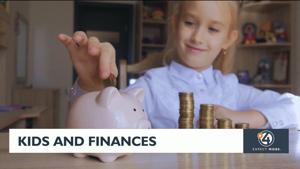Parents looking to teach their children about money management have an ally in starting those conversations early, according to a local financial expert.
Buffy Nustad, community engagement manager at STCU, emphasizes that financial education should begin much earlier than many parents realize.
“Kids as young as pre-K can learn about the concept of spending money for goods and services,” Nustad said.
As children mature, the lessons should evolve to include budgeting skills, whether they’re managing an allowance or earnings from their first job. These early conversations create lasting impact.
“And those conversations are important because it can set a really solid foundation for their own relationship with money as they become adults,” Nustad explained.
Opening First Bank Accounts
Nustad recommends ages 10 to 12 as the optimal time for children to open their first checking account, ideally with parental oversight.
“So you can still very heavily control their spending and have the conversations with them and help them understand that concept of budgeting and spending and tracking their spending,” she said.
STCU offers tools to help families with financial education, including a “money jar” system designed to help children organize their finances into clear categories.
“Spend, share and save. So physically, they can put cash in here. That helps them understand. They can write on the side if they’re saving for a specific goal,” Nustad said.
Learning Through Mistakes
One key strategy Nustad advocates for involves parents sharing their own financial missteps with their children while allowing kids to make age-appropriate money mistakes.
“Them overspending 20 dollars now is a lot less consequential than them overspending by thousands as an adult,” she noted.
Transparency for Teenagers
For families with teenage children, Nustad suggests increased transparency about household finances and real-world budget constraints.
“How much does housing cost? How much is your rent? How much are your monthly bills? So that they can start to understand your monthly constraints and your monthly commitments,” she said.
Leading by Example
The financial expert stresses that parents should model good financial behavior for their children. This includes demonstrating how to stay within budget constraints and, when applicable, showing children how debt repayment works.
Parents who actively demonstrate responsible financial management while maintaining open dialogue about money decisions help prepare their children for independent financial decision-making in adulthood.
The approach combines practical tools, age-appropriate lessons, and transparent communication to build financial literacy that can benefit children throughout their lives.
COPYRIGHT 2025 BY KXLY. ALL RIGHTS RESERVED. THIS MATERIAL MAY NOT BE PUBLISHED, BROADCAST, REWRITTEN OR REDISTRIBUTED.
